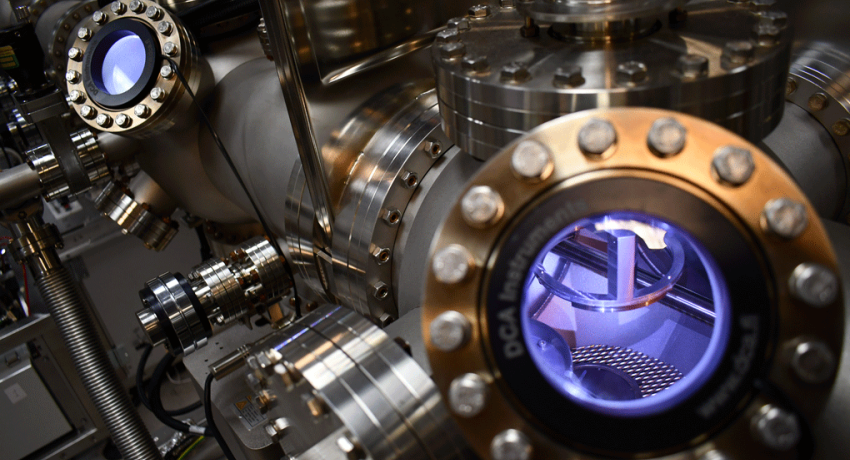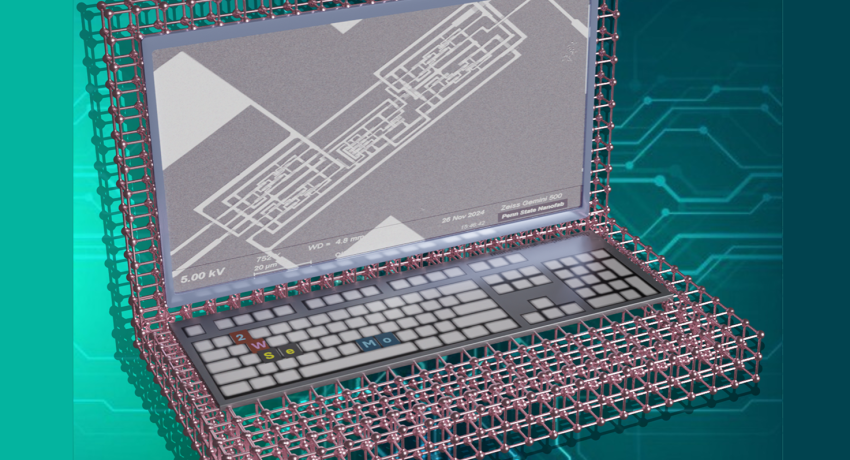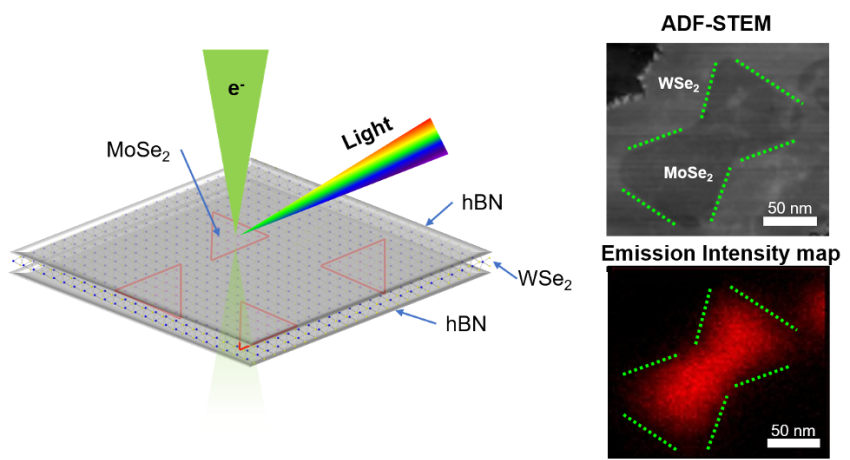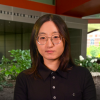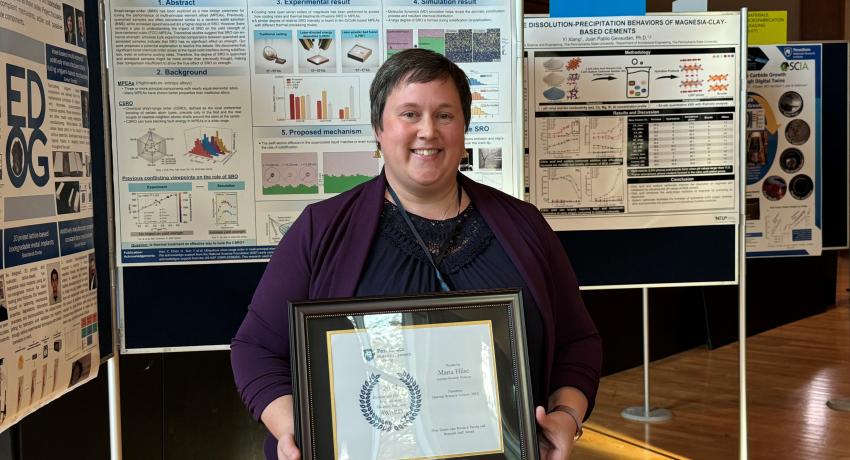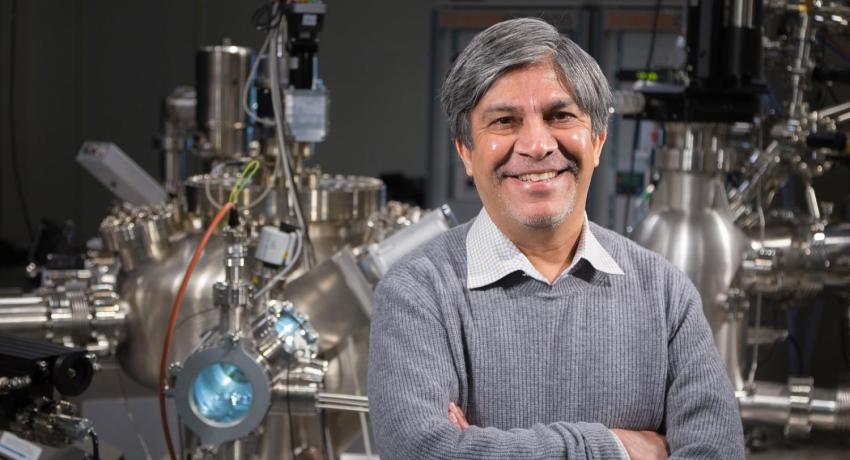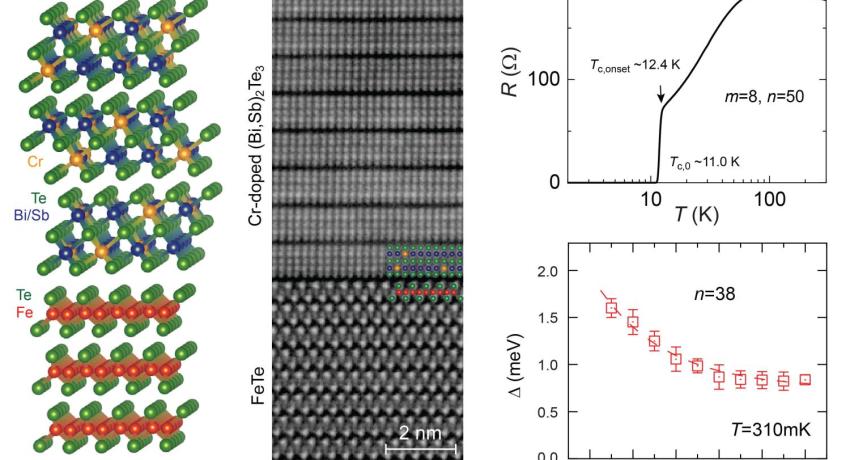Tools of Discovery: How new equipment is powering research breakthroughs at Penn State
By Jamie Oberdick
From growing perfect crystals to testing materials in real-world conditions, Penn State’s advanced lab tools are making scientific breakthroughs possible
Great ideas and brilliant researchers are essential for discovery—but so is having the right equipment. At Penn State, scientists are pushing the boundaries of materials science thanks to new, state-of-the-art tools that let them explore questions they couldn’t answer before.
World’s first 2D, non-silicon computer developed
By Ashley WennersHerron
Silicon is king in the semiconductor technology that underpins smartphones, computers, electric vehicles and more, but its crown may be slipping, according to a team led by researchers at Penn State. In a world first, they used two-dimensional (2D) materials, which are only an atom thick and retain their properties at that scale, unlike silicon, to develop a computer capable of simple operations.
‘Nanodot’ control could fine-tune light for sharper displays, quantum computing
By Jamie Oberdick and Ashley WennersHerron
Newly achieved precise control over light emitted from incredibly tiny sources, a few nanometers in size, embedded in two-dimensional (2D) materials could lead to remarkably high-resolution monitors and advances in ultra-fast quantum computing, according to an international team led by researchers at Penn State and Université Paris-Saclay.
Yiru Zhu
(e) ymz5687@psu.edu
N-258 Millennium Science Complex
Maria Hilse named as 2024 Rustum and Della Roy Innovation in Materials Research Award Winner
Congratulations to Maria Hilse who received the 2024 Rustum and Della Roy Innovation in Materials Research Award for Research Faculty. Hilse’s research focus is on the synthesis and characterization of unique materials that are extremely thin, such as one- and two-dimensional nanostructures, films and heterostructures using MBE. This method works in conditions similar to the vacuum of outer space and allows precise control over these ultra-thin films' thickness.
$3M grant targets integrated semiconductor for smarter, greener electronics
By Jamie Oberdick
The microelectronics industry is nearing a tipping point. The silicon chips at the heart of everyday electronic devices are running into performance limits, raising the need for new materials and technologies to continue making faster, more efficient devices.
Stephanie Law Selected as 2024 AVS Fellow
Stephanie Law was selected as a 2024 fellow by AVS “For contributions to the molecular beam epitaxy of III-V materials and topological insulators for applications in mid-infrared and THz plasmonic and metamaterial devices”. 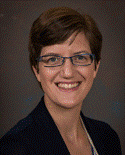
Nitin Samarth honored with Adler Lectureship Award from American Physical Society
Nitin Samarth, Verne M. Willaman Professor of Physics, has been selected to receive the American Physical Society’s 2024 David Adler Lectureship Award in the Field of Materials Physics. The award recognizes an outstanding contributor to the field of materials physics who is notable for high quality research, review articles, and lecturing.
Combining materials may support unique superconductivity for quantum computing
By Gail McCormick
A new fusion of materials, each with special electrical properties, has all the components required for a unique type of superconductivity that could provide the basis for more robust quantum computing. The new combination of materials, created by a team led by researchers at Penn State, could also provide a platform to explore physical behaviors similar to those of mysterious, theoretical particles known as chiral Majoranas, which could be another promising component for quantum computing.


